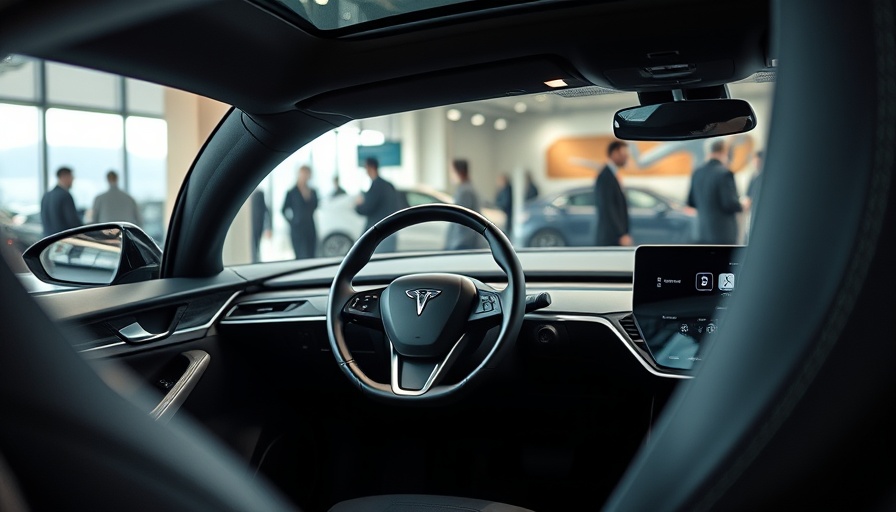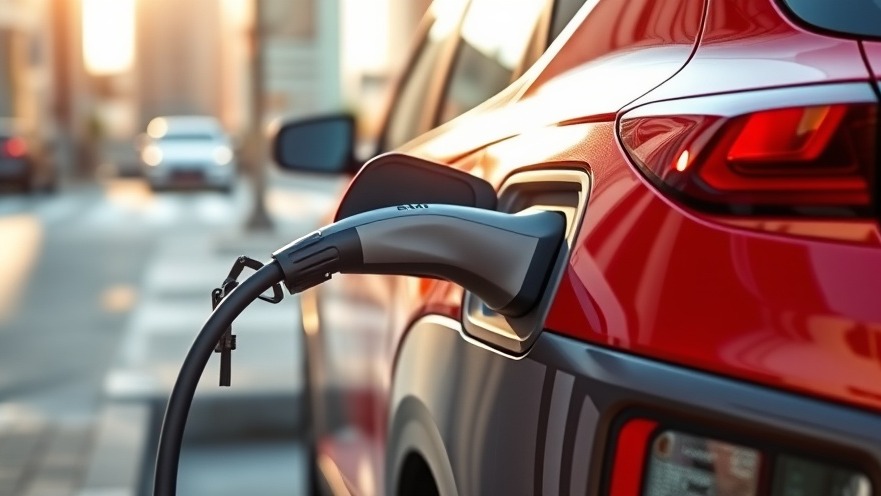
Are We Finally At a Tipping Point for Sustainable Aviation Fuel?
As the world pivots towards sustainable practices, a critical question looms large: can sustainable aviation fuel (SAF) help revolutionize the travel industry? In 2025, it accounted for less than 0.15% of total fuel used by 77 leading airlines, but innovative advances could be on the horizon. Let's explore where we stand and what it means for boutique hospitality professionals—a group often challenged to balance eco-commitments with business operations.
The Slow Adoption of Sustainable Aviation Fuel
For nearly two decades, stakeholders in the aviation industry have experimented with various bio-based sources to produce SAF. This includes everything from algae and agricultural waste to food scraps and oilseeds. Although the potential for rapid scaling exists as fuels can be blended with conventional jet fuel, progress has been sluggish. Take United Airlines as an example; they were first to test SAF in 2009 and have committed to a staggering volume of over 5 billion gallons for future production. Yet, current production remains limited and costly. Last year, SAF constituted a mere fraction of the total fuel supply.
Looking at the Agricultural Footprint
Interestingly, corn and soy oil made up more than 30% of the SAF used by surveyed airlines. This fact raises a significant concern—agriculture-related carbon emissions could negate some of the environmental benefits SAF claims. The question arises: are we trading one environmental concern for another?
Addressing Cost Barriers with Electrofuels
In the quest for sustainable fuel options, electrofuels present a promising alternative. Often created from renewable energy sources like solar power, these fuels are synthesized by combining green hydrogen with captured carbon. Unlike SAF, which must blend with conventional jet fuels, electrofuels can serve as a drop-in solution, simplifying the transition. However, cost remains a hurdle, though some analysts anticipate prices for green hydrogen will eventually become competitive.
What It Means for Boutique Hospitality Professionals
But how does this relate to small-scale hoteliers, eco-lodge operators, and Airbnb hosts? The answer lies in the emerging eco-conscious travel trends. Guests increasingly favor accommodations that prioritize sustainability, and those in the hospitality industry can benefit from these shifts by promoting eco-friendly practices, including supporting the broader adoption of SAF in air travel. By understanding these transitions in aviation, boutique hospitality professionals can align their marketing and sustainability goals effectively.
Future Predictions and Opportunities
As travel regulators tighten environmental regulations, industry experts predict a pivotal moment for SAF. Companies and airlines that invest in sustainable practices will not only meet regulatory demands but potentially tap into an evolving market of eco-conscious travelers. Boutique hotels that align with these trends could attract guests eager to support businesses committed to corporate sustainability.
Actionable Strategies for Sustainable Growth
How can the hospitality sector leverage this knowledge? Here are some actionable insights:
Communicate Clearly: Educate guests on the impact of flying sustainably. Use your platforms to share how SAF contributes to reduced fossil fuel consumption and promotes a greener planet.
Invest in Off-Grid Solutions: Consider integrating off-grid solar solutions into your properties to power operations, which could serve as a case study in corporate sustainability.
Encourage Sustainable Choices: Offer incentives for guests who use carbon offset programs when booking flights.
The Emotional Connection to Sustainability
Emphasizing the personal impact of sustainable practices can foster a deeper connection with your guests. Many people feel a personal responsibility to combat climate change, and every small action taken—be it choosing an eco-lodge or opting for flights utilizing SAF—contributes to a collective effort.
Conclusion: Why Action Matters
As the sustainable aviation fuel landscape evolves, the roles of both airlines and hospitality providers become intrinsically linked. By staying informed and championing sustainable practices, boutique hospitality professionals not only enhance their business but also contribute to a broader movement towards responsible travel. Embrace these changes. Let your guests know you care about sustainability, and together, we can chart a course for a greener future.
 Add Row
Add Row  Add
Add 




Write A Comment